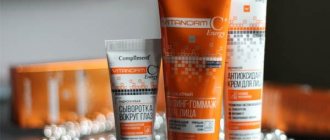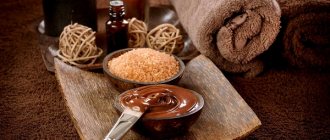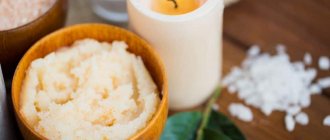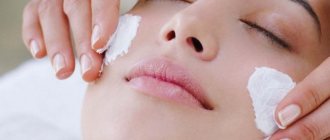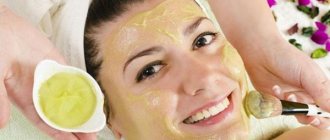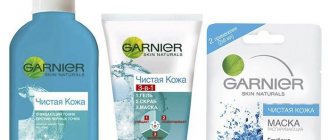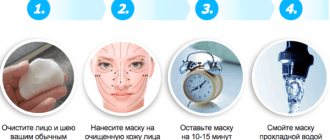Did you know that you can use regular aspirin for facial acne? Don't doubt it because it is true. Let me tell you how to do this and how aspirin is beneficial for your face.
Aspirin contains salicylic acid, an ingredient that helps fight acne. Additionally, aspirin is an anti-inflammatory drug, making it an ideal solution for reducing acne problems and an excellent remedy for facial breakouts. Applying aspirin to your skin reduces acne, scars and redness on your face. It also has the ability to shrink pores and prevent the secretion of sebaceous glands.
What other reason to use it for facial acne problem? It is easily available and not expensive.
Homemade skin care products with aspirin are especially good for people with problem skin such as pimples and blackheads. Aspirin-based cosmetics are recommended for oily skin, mainly because acetylsalicylic acid regulates the functioning of the sebaceous glands. Aspirin is also beneficial for mature skin because it evens out skin tone and can improve the quality and elasticity of facial skin.
You can mix different ingredients with it depending on your skin type.
Universal medicine
Acetylsalicylic acid was made more than 100 years ago by German pharmacist Hoffman.
Based on the results of testing the medication, it was determined that with constant use of the drug, there is a decrease in the risk of blood clots, reduction in the lumen of blood vessels, and improved blood circulation.
Many doctors today attribute the medication to those people who have heart and vascular diseases and are prone to stomach and rectal cancer, and pressure surges.
But not everything is so rosy; the drug has contraindications, and very serious ones. Before taking orally, consult your doctor. Externally, it does not have so many contraindications.
Recipes for anti-aging masks with aspirin
Now let's get acquainted with the recipes, which, according to reviews, are considered the best and most effective in combating various skin imperfections.
Recipe 1. With mineral water
This is an excellent composition for those who want to clean pores and get rid of blackheads, acne and oily shine for a long time.
- Take 2 aspirin tablets;
- 10g medium fat sour cream;
- 5 ml sparkling mineral water.
Interesting! Beneficial properties of jojoba oil for skin
Grind the tablets with a spoon and fill with mineral water. Wait until they are completely dissolved. Then add sour cream and mix everything. Apply the mask for 20 minutes.
Recipe 2. With lemon juice
A very concentrated composition, suitable exclusively for oily skin. It has excellent whitening properties and mattifies.
- 3 tablets of acetylsalicylic acid;
- 10ml fresh lemon juice.
First, scald the lemon slice from which you will extract the juice in boiling water. Next, squeeze it out and dissolve the crushed tablets in the resulting liquid. Apply the mixture to your face using a sponge. Keep for no more than 10 minutes. Then rinse everything off with cool water.
Recipe 3. With cosmetic clay
This mask has an excellent tightening effect, dries out pimples, and smoothes out wrinkles.
- Prepare 2 aspirin tablets;
- 10g cosmetic clay, ideally white, it is universal;
- some water or cold green tea.
Grind the tablets to a powder and mix them with clay. Next, pour the mixture with water or tea until you obtain a thick paste, which should be applied to the face for 20 minutes.
Recipe 4. With honey and starch (suitable for skin after 60 years)
Face masks with aspirin and honey work very well in the fight against wrinkles. They also have nutritional properties and moisturize the dermis.
- Take 3 aspirin tablets;
- 5g honey, preferably mustard;
- 5-7g potato starch;
- 15 ml sea buckthorn oil;
- some water.
Grind the tablets and mix with starch. Next, fill the powder with water and wait until it swells. Next, add the oil and honey, stir everything. Apply to face with a brush for 15 minutes. If the mask was used for aging or dry skin, be sure to moisturize it with cream afterwards.
Recipe 5. With gelatin and glycerin
A very effective composition that deeply nourishes, removes inflammatory processes, soothes the skin, tightens the texture of the face, smoothes out wrinkles. This mask is suitable for dry skin.
- 2 aspirin tablets;
- 10g edible gelatin;
- 25g glycerin;
- 15g honey;
- 35 ml warm water.
Interesting! How to use olive oil on your face
Pour gelatin with 20 ml of water and leave to swell. Then dissolve the tablets in the remaining water. When the gelatin swells, heat it in a water bath to melt and combine with the rest of the ingredients. Mix until smooth, apply to face for 20 minutes.
Recipe 6. With aloe
This composition has excellent anti-aging properties. In addition, it vitaminizes the skin and gives it a healthy glow. To prepare, take:
- 3 aspirin tablets;
- 5g natural honey;
- 10g aloe pulp.
Keep the cut aloe leaf in a cold place for at least 10-12 hours. Then grind it to a paste. Grind the tablets, mix with honey and add to the agave. Mix everything well and apply to your face for 20 minutes. If you don't have aloe at home, you can use spirulina. She is also very helpful.
Recipe 7. With apple and vitamin E
This mask refreshes, improves skin tone, makes it firmer and more elastic.
- Take 1 tablet of acetylsalicylic acid;
- one capsule of vitamin E;
- 5g applesauce;
- 5g of natural yoghurt without additives or dyes.
Loading …
Combine all components and apply to clean skin for 20 minutes.
Anti-aging face masks with aspirin, prepared at home, have repeatedly proven their high effectiveness. With regular use, they will save you from the need to visit a cosmetologist.
Roll up your trousers, jeans, and sleeves on your jacket and shirt. These seemingly minor details will make your look more stylish.
Aspirin: yesterday and today
– Do you have acetylsalicylic acid? – Do you need aspirin? - Yes, I can’t remember this word. Aspirin is the colloquial name for acetylsalicylic acid. Today this drug is included in the list of essential medicines of the World Health Organization (WHO) and in the list of vital and essential medicines in Russia. This medicine also has a rich and interesting history.
History and reasons for popularity
It is believed that acetylsalicylic acid was first synthesized by the French scientist Charles Frederic Gerard in 1853 from the bark of the willow tree. And in a form suitable for medical use, already in 1897, in the laboratory of the Bayer company, it was created by the German chemist Felix Hoffmann, who was trying to find a cure for his father, who suffered from rheumatism.
According to the laws of the German Empire at the time, chemical compounds were not subject to patenting, but a unique trademark could be registered. Therefore, the word “aspirin” was invented to name the new drug. “A” was taken from “acetyl”, “spir” from the Latin name for the herb meadowsweet, spirea, rich in salicin, “in” - as a typical ending for a word denoting a drug. At first, aspirin was sold in powder form, and since 1904 - in tablet form. Being inexpensive, effective and relatively harmless, it quickly became the most popular pain reliever.
In the Soviet Union, aspirin was a truly universal remedy: mothers and grandmothers canned cucumbers with it, it was added to poison for cockroaches, to cosmetic masks as a remedy for acne, to remove stains from sweat and blood, and was used as a hair rinse after swimming in chlorinated pool water. , fought the effects of insect bites and fertilized plants in gardens, treated dandruff and hangovers, added them to car batteries, used them instead of flux and rosin for soldering and made roses stay fresh longer, cleared blockages in sinks, treated calluses, and used them instead of a tonic.
It seems that Soviet people tried to use penny tablets in any way they wanted, just not for their intended purpose. From time to time, “cutting-edge” discoveries of aspirin substitutes appeared in the press. In its place, they offered tomatoes, honey, prunes, raisins, dill, raspberries, ginger and saffron. And dozens more different products that are useful from the point of view of traditional medicine. But the white willow bark always prevailed in this dispute.
And it is not surprising, since Hippocrates used its decoction in combination with poppy tincture as an antipyretic and analgesic. And in the 18th century, a British abbot conducted the first “clinical trials” in history, in which fifty fever patients participated. He proved the antipyretic effect of white willow bark extract and reported the results to the Royal Society.
Multifunctional medicine
But the main task of aspirin today is to prevent strokes and heart attacks.
Aspirin is known to prevent blood clots. The results of numerous studies indicate that the maximum positive effect from the preventive use of acetylsalicylic acid can be achieved if you take the drug for at least five years. At the same time, the drug is more effective in preventing heart attack in men, and stroke in women.
Currently, acetylsalicylic acid is the only antiplatelet drug whose effectiveness when prescribed in the acute period of ischemic stroke is supported by evidence-based medicine.
American oncologists want to include aspirin in recommendations for cancer prevention.
Experts have analyzed numerous research results that confirm the antitumor effect of aspirin. According to the scientists' findings, preventive intake of 75–325 mg of aspirin per day for ten years helps reduce the likelihood of colorectal cancer by 35%, and the risk of death from it by 40%. Moreover, among patients regularly taking aspirin, cancer of the esophagus and stomach developed 30% less often.
Taking aspirin daily reduces the risk of developing breast cancer by 20%. According to other studies, regular use of acetylsalicylic acid reduces the 20-year risk of developing prostate cancer by 10%, lung cancer by 30%, colon cancer by 40%, and esophageal and throat cancer by 60%.
Researchers at Harvard Medical School, together with colleagues from the Massachusetts Institute of Technology and Massachusetts General Hospital, have for the first time established that taking aspirin is associated with stopping the growth of vestibular schwannoma, a benign tumor that grows from Schwann cells of the auditory nerve. In some cases, it leads to the development of a lethal intracranial tumor and also causes hearing loss and tinnitus.
According to medical observations, aspirin also:
- relieves migraine attacks
(dose 2000 mg) as successfully as drugs specially developed for this purpose (the so-called triptan series), which can only be purchased with a doctor’s prescription. In fairness, it should be noted that both medications help only half of the sufferers, and only one in four bring complete relief from the attack. - lowers blood sugar levels
. This property of salicylates (the same ones that willow bark is so rich in) has been known to doctors since the 19th century. But the mechanism was discovered by young Chinese scientists only in 2003. It turned out that aspirin increases the sensitivity of cells to insulin, a decrease in which is the basis of type II diabetes. In 2011, the American Diabetes Association included 75–162 mg daily aspirin in its recommendations. - weakens the activity of Staphylococcus aureus
, a well-known hospital resident, which many become familiar with literally from birth. Staphylococcus does not bother anyone as long as it lives on the skin and mucous membranes. Its migration into the blood is dangerous. Especially for people with weakened immune systems: newborns, the elderly, postoperative patients. Alas, today the damned microbe has perfectly adapted to almost all known antibiotics. Therefore, the role of aspirin as a good ally in the fight against it is extremely important.
An unexpected use for the drug was discovered by researchers at the University of Chicago. They stated that aspirin may help combat intermittent explosive disorder. This is the inability to control aggressive impulses, which usually appears towards the end of adolescence.
Currently, studies are being conducted on aspirin as a means of primary prevention of complications of atherosclerosis and even...Alzheimer's disease.
Panacea? Not at all! Medical historians believe that mass use of aspirin (10–30 g each) significantly increased mortality during the 1918 influenza pandemic. And it has a lot of side effects... But the facts are stubborn things: more than 80 billion aspirin tablets are consumed annually, and in 2009, researchers discovered that salicylic acid, a derivative of which is acetylsalicylic acid, can be produced by the human body.
Valentina Saratovskaya
Photo thinkstockphotos.com
Product by topic: [product](acetylsalicylic acid), [product](aspirin)
Preparation of products and masks with aspirin for acne and blackheads
To prepare any mask with aspirin, you must first crush several tablets and combine them with all the other ingredients.
Keep any of the aspirin masks on your face for 15-20 minutes. It is recommended to use most of the recipes described below no more than 2 times a week.
Aspirin with honey for acne and blemishes
Anti-inflammatory, antiseptic and regenerating properties are the main advantages of a mask made of honey and aspirin, which justifies its use for both acne and blemishes.
Grind 2-3 aspirin tablets into powder and add a few drops of warm boiled water and mix. Add one teaspoon of honey to the resulting mixture and mix again. You should get a homogeneous mass.
Massage the acne mask made of honey and aspirin onto your face. Rinse off with warm water after 20 minutes.
But that's not all you need to know. The mask is so effective that a separate article “Face mask with honey and aspirin for acne” is dedicated to it. If you are interested in the recipe, be sure to read the article.
Aspirin and suprastin for pimples, blackheads and blackheads
Grind one tablet each of the antibiotic suprastin and aspirin to a powder. Stir and add one drop of warm boiled water. The mask is ready!
A mask of aspirin and suprastin, in addition to cleansing the face, will help quickly cope with skin redness.
Calendula, aspirin and chloramphenicol for acne
A lethal agent, as it combines three components with anti-inflammatory and antibacterial properties.
To prepare a mask for acne from aspirin, chloramphenicol and calendula, you need to take and mix: 40 ml of calendula tincture (standard pharmacy packaging) and four crushed tablets of chloramphenicol and aspirin. Apply to a cotton swab and wipe your face.
Effective scrub for blackheads with aspirin
As mentioned above, aspirin is great for getting rid of blackheads on the face and also prevents their reappearance.
The best recipe for a scrub for blackheads with aspirin is a face mask made of clay and aspirin. The mask is so amazing that it deserves its own article, which I highly recommend you read.
Recipe for acne shake with aspirin
The mash provides the strongest antiseptic, anti-inflammatory and drying effect. Apply carefully so as not to burn the skin.
To prepare aspirin mash for acne, you need to mix 5 g of chloramphenicol, 2 aspirin tablets, 50 ml of 96% ethyl alcohol and 50 ml of boric acid.
Use as a regular lotion at night, without rinsing off. Be sure to shake before application.
Aspirin and hydrogen peroxide
Here is another practical recipe for acne and blackheads. Hydrogen peroxide and aspirin disinfect the skin well and have a good drying effect.
Grind 3-4 aspirin tablets, add 2-3 drops of hydrogen peroxide and a few drops of warm water. Mix everything thoroughly and apply for 10 minutes.
Salicylic acid and aspirin for acne
Take and mix 40 ml of 1% salicylic acid (you should not increase the concentration, as this can dry out the skin) and 1 crushed aspirin tablet. Acne tonic is ready!
Shake the bottle before each use. Salicylic acid and aspirin are great for acne, and for a better effect you can also add 4 tablets of chloramphenicol.
Aspirin and boric acid
To prepare this recipe you will need: 50 ml of ethyl alcohol, 50 ml of 1% boric acid, 4 tablets of aspirin, 4 tablets of chloramphenicol. Pre-crush the tablets and mix with liquid.
An excellent antiseptic and drying effect is guaranteed. Can be used daily!
Cosmetologists' opinion
Specialists in the beauty industry often carry out chemical peeling procedures, which involve the use of a mask made from a cleansing composition. Often the active substance in such mixtures is salicylic acid, from which acetylsalicylic acid, which is part of aspirin, is produced. And although cosmetologists do not make face masks from aspirin, but use ready-made formulations, they leave positive reviews regarding the effect of the drug on the skin. The beneficial properties of aspirin include:
- the bactericidal effect of salicylic acid and its derivatives, as a result of which inflammation goes away, minor damage heals and acne dries out;
- exfoliation of old cells;
- cleansing clogged pores with their subsequent narrowing.
Based on this information, women began to actively use aspirin on their faces at home. In order to protect yourself while using a mask at home, experts recommend:
- use tablets without unnecessary impurities, that is, so that acetylsalicylic acid forms the basis of the medicine;
- Before use, be sure to check for allergies;
- do not keep the mask on your face for more than 10 minutes;
- The best time to perform the procedure is before bedtime;
- apply the composition no more than 3 times a week;
- be sure to use moisturizer after the procedure;
- To soften the effect of aspirin, you can add vegetable oil.
By following these tips, many women protected themselves from possible skin damage and were satisfied with the result.
Recipe for chemical peeling with Aspirin for problem skin
Acetylsalicylic peeling for this skin type often includes blue clay, lemon juice and honey. These components help exfoliate dead skin flakes. It is these dead cells that cause acne. Sebum cannot be removed normally from under their surface, which leads to inflammation of the sebaceous gland.
Aspirin peeling based on honey
It is enough to mix 4 Aspirin tablets, 1 tablespoon of warm water and 1 tablespoon of liquid honey. Mix the mixture and apply to cleansed skin with light massage movements. Rub into skin for 2 minutes. You can wash off the mask after 10 minutes with warm water. If necessary, moisturize the skin with cream after the procedure. Perform once every 7 days. If you are allergic to honey, you can replace it with kefir.
Peeling with blue clay
This peeling recipe with Aspirin is suitable for those who have stagnant spots. Blue clay increases blood circulation in the deep layers of the skin, which provokes the resorption of stagnant elements.
To prepare, you need to crush 3 Aspirin tablets to a powder. Next, add a teaspoon of blue clay to the aspirin powder. Mix everything and add warm water to get the consistency of thick sour cream. For an even greater antibacterial effect, add 2-3 drops of tea tree oil or grape seed oil. Apply to skin with light movements
It is important to go around the areas under the eyes. Place a moistened napkin on top of the skin so that the composition does not have time to dry out.
Hold for 10 minutes.
Rinse off with warm water. If you have small rashes, you can wash your face with chamomile infusion. This procedure can be done once a week.
Are there any contraindications?
Aspirin peeling is definitely useful. The procedure is especially in demand for women suffering from acne and the appearance of blackheads, both in small areas and on a large scale. This is also a good therapeutic manipulation if the skin is highly sensitive and reacts to climatic changes or after prolonged use of decorative cosmetics.
After several procedures, you can notice the transformation of aging skin, since after exposure to aspirin it becomes firm and elastic, the contour becomes clearer, oily shine, dullness, and fatigue disappear. The skin receives intensive nutrition and full breathing of every cell.
Despite the many advantages and the desire to experience all the benefits of using acid aspirin peeling, it is important to remember that the product is a medical drug, and accordingly, it has a number of contraindications that should be taken into account:
The procedure should be abandoned if the surface of the facial skin is injured and there is significant damage (we are not talking about wounds after squeezing out pimples). Ignoring the recommendation may cause severe itching. After the hair removal procedure (depilation, sugaring). After removing the hair follicles, a large number of small wounds remain on the skin
Acetylsalicylic acid may have negative effects on the skin. There is an individual sensitivity to the drug, and it sometimes provokes the appearance of signs of allergy. Aspirin used in the peeling composition has an aggressive effect on the epidermis, therefore, when using it to cleanse sensitive skin, you should be vigilant and especially careful. The method of cleansing the skin with aspirin helps to brighten the complexion. For women who want an even tan on the seashore, this procedure is not recommended.
Moreover, any acid peeling, regardless of its composition, requires further special skin care. First of all, the face should be protected from exposure to sunlight. You can't peel if you have rosacea. After tanning, acid peeling using ascorbic acid should be avoided, as this will lead to lightening of the skin and uneven color. Since peeling helps improve blood circulation, manipulation is not used by women with vascular network, diagnosed with rosacea. The procedure is not suitable for excessively dry skin. Aspirin peeling is strictly prohibited for women during pregnancy and breastfeeding. Any influence on the body of chemicals without urgent need and doctor’s orders is prohibited.
Instructions for preparing the mask
This mask is very easy to make at home. We will describe in detail all the stages of preparation, and you can easily make it yourself.
Components
- Honey - half a teaspoon;
- Aspirin – about 4 tablets;
- Water – 1 teaspoon.
Cooking process
The first thing to do is crush the aspirin tablets. This is done in a special device or on a regular cutting board or in a metal bowl. Clay, ceramic or glass dishes will be inappropriate, since there is a high probability that you will simply break them or crack from strong pressure.
- Crush the aspirin in a non-fragile container using a knife, spoon, rolling pin, fork, or whatever is more convenient;
- Before you crush the tablets, place and wrap them in a sheet of paper so that they do not scatter on the surface;
- The powder should be placed in a bowl and filled with water;
- Add liquid honey to the mixture of aspirin and water and mix everything well;
- You can apply it!
Correct use of aspirin formulations
The unique drug can have a fairly active effect on the skin, so masks and scrubs should contain a minimal amount of aspirin.
Before you start using acetylsalicylic acid for your face, be sure to carefully study the recommendations of cosmetologists and choose a treatment that suits your skin type.
Tips for using cosmetic masks
In order for the effect of the procedure to fully meet expectations, it is necessary to follow certain rules for the manufacture and use of masks:
- Only regular tablets should be used; aspirin in capsules or effervescent form should not be used.
- An allergy test must be performed. To do this, you need to crush the tablet, then dilute it with water and apply it to the elbow. If after 20-30 minutes there are no unpleasant sensations in the form of itching or burning, then the medicine can be safely used.
- Masks should be applied only to cleansed, pre-steamed skin, preferably in the evening. It should remain on the face for no more than 25 minutes. Then you need to rinse it thoroughly and use a moisturizer.
- The prepared mixture must be fresh; it is not intended for storage and subsequent use.
- You should make aspirin-based masks no more than 2 times every 7 days.
After using acid care products, it is recommended to protect the skin from sunlight. To do this, you need to use a day cream with a high degree of ultraviolet protection. Otherwise, the epidermis may become covered with pigment spots, which are subsequently quite difficult to get rid of.
Aspirin-based care products
You can cleanse and restore your skin with various preparations containing aspirin. The recipes for preparing them are very simple, and the effect of use will not take long to appear. They are prepared in this way:
- Tonic. Perfectly dries out pimples and tones the epidermis. You need to take 100 grams of mineral water, then add 6 tablets of acetylsalicylic acid and 20 ml of apple cider vinegar. The resulting mixture must be shaken before each use.
- Scrub. Ideal product for oily skin. You need to combine 4 tablets of medication and 10 grams of coarse salt. Then add a little honey and stir. Apply to face with massaging movements and leave for 7 minutes, then rinse.
- Composition for washing. It is necessary to crush 3 tablets and add to the gel intended for cleansing the face, then make sure that they dissolve well. The cleansing composition is recommended for use during water procedures. It removes dirt well and disinfects the skin.
With regular use of these products, the epidermis will become significantly fresher and smoother. This care is especially recommended for problematic and aging skin.
When is aspirin used
Let's take a closer look at the cases in which this product can be used to combat imperfections in our skin.
For acne
The use of acetylsalicylic acid for isolated rashes (pimples) is justified by its excellent anti-inflammatory effect, and therefore a reduction in redness. And the drying effect that this drug has helps speed up the drying of the pimple. After all, as you know, “acne needs to be dehydrated.”
For acne
Acetylsalicylic acid will help you reduce the severity of acne inflammation, reduce pain and speed up skin healing. All this is achieved due to the anti-inflammatory and antibacterial (in combination with alcohol and antibiotics) properties of Aspirin. However, in case of extensive localization of rashes, it is highly not recommended to use scrubs. Because this can increase inflammation and even provoke new rashes.
What diseases does acetylsalicylic acid help with?
Acetylsalicylic acid or “Aspirin” is considered an almost universal drug. Judge for yourself: the medicine “Aspirin” effectively lowers temperature, relieves pain, and quickly helps to stop various inflammatory processes in the body. This remedy also has the property of thinning the blood, which can help if there is a risk of blood clots.
Rough menstrual periods, especially those that occur suddenly, require consultation with a gynecologist as they can cause a variety of conditions! Using acetylsalicylic acid during a period can not only increase and prolong bleeding, but in some, especially vulnerable women, also cause hemorrhage. Obviously, aspirin is unlikely to be found in a single tablet, but it is theoretically impossible to combine several tablets over a long period of 24 hours. In addition, we must remember that each of us has a different coagulation pattern - each of us may react differently to this drug.
Do you want to know how else acetylsalicylic acid works and what it helps with? For people prone to heart and vascular diseases, doctors often recommend long-term use of small doses of Aspirin; this significantly reduces the risk of stroke or myocardial infarction.
Therefore, it is better not to take risks, in particular that there are many alternatives. She was often accepted and returned for everything. We heard about aspirin less often, sometimes in the news from the West. In case of mild cold there was always aspirin. Improves blood circulation, analgesic effect.
In a nutshell, it is acetylsalicylic acid, commonly called aspirin or polypyrin. It has always been used in case of colds or headaches. However, this specification can also save you from having a stroke or heart attack. For years we have wondered how aspirin works, when and where to get it. As you can see, this drug and its effects still contain many secrets.
For headaches, as well as when teeth hurt, acetylsalicylic acid can have a good operational analgesic effect. This remedy also helps well with painful periods and pain caused by neuralgia, osteoarthritis or arthritis. Another advantage of this drug is that it does not develop addiction, which distinguishes it from other analgesics.
How does aspirin affect the course of cancer treatment?
Study results now show that low-dose aspirin may reduce the risk of dying from cancer and dying from cancer. Small doses, systematically taken, aspirin taken daily prevent the risk of heart disease. Recent discoveries point to some cancers. The research lasted quite a long time. The participants in this study were monitored for 5 years. Those who took aspirin were less likely to develop metastases.
Recommended - as always - consultation
However, there are side effects of aspirin. One of them is bleeding from the digestive tract. Cardiff University researchers have asked the authors of all studies for more information. Aspirin has never caused serious, life-threatening bleeding.
But acetylsalicylic acid is not so harmless! A doctor should always write a prescription for it; independent uncontrolled use of Aspirin can lead to undesirable consequences.
Salicylic acid, application in medicine and cosmetology.
Salicylic acid is known to many as a medicine for treating skin diseases. In addition, this same compound is the basis of the well-known Aspirin. Salicylates are salts of salicylic acid, found in many medicinal plants that have anti-inflammatory and antipyretic effects (for example, raspberries are rich in them). It is also a common ingredient in many skin care products.
Salicylic acid, lat. Acidum salicylicum (genus Acidi salicylici ) , (from the Latin salix “willow”, from the bark of which it was first isolated) - 2-hydroxybenzoic or phenolic acid, C6H4(OH)COOH; colorless crystals, highly soluble in ethanol, diethyl ether and other polar organic solvents, poorly soluble in water (1.8 g/l at 20 °C).
Isolated from willow bark by the Italian chemist Rafael Piria and then synthesized by him.
Found naturally in plants as derivatives, usually as a methyl ester glycoside, salicylic acid in particular was first isolated from willow bark, hence its name. Free salicylic acid, along with salicylic aldehyde, is found in small quantities in the essential oil isolated from the flowers of some species of spirea (Spiraea ulmaria, Spiraea digitata).
Salicylic acid is easily soluble in ethanol and diethyl ether, and slightly soluble in carbon disulfide. Solubility in water (g/l): 1.2 (0 °C), 1.8 (20 °C), 8.2 (60 °C), 20.5 (80 °C).
Pharmacological action - wound healing, antiseptic, local irritant.
Promotes cleansing of the wound from purulent discharge and its healing, eliminates perifocal inflammation. It has a distracting, keratolytic (in high concentration) and keratoplastic (in low concentration) effect. Suppresses the secretion of sebaceous and sweat glands.
It is used as monotherapy and as part of combination drugs for inflammatory, infectious and other skin lesions, incl. burns, psoriasis, eczema, dyskeratosis, ichthyosis, acne vulgaris, warts, hyperkeratosis, calluses, calluses, oily seborrhea, pityriasis versicolor; hair loss; sweaty feet.
Due to its antiseptic effect, salicylic acid is used in food preservation;
Production of azo dyes, fragrances (salicylic acid esters);
Colorimetric determination of Fe and Cu to separate thorium from other elements.
Salicylic acid is a product that is used externally. It is quite cheap, but at the same time it has several methods of use and really helps with various problems.
Principles of action on the skin:
- Deep penetration at the site of application.
- Suppression of the activity of the sweat and sebaceous glands.
- Elimination of the inflammatory process.
- Softening of the outer layer of the skin and its gradual discoloration, which leads to easy separation from the surface of the skin.
- Cleansing wounds from purulent discharge and stopping the spread of pathogenic bacteria.
- Accelerating the healing process by increasing blood flow to this area of the skin.
Properties: antimicrobial and irritant.
There are several methods of use; salicylic acid is available in different forms with different concentrations of the active substance:
- solution (aqueous and alcoholic) - 1% and 2%;
- ointment – 1%, 2%, 5%, 10%;
- powder (powder);
- paste;
- patch.
In medicine, the use of salicylic acid is effective for the treatment of skin diseases of various origins:
- pyoderma;
- mycosis of the feet;
- versicolor and pityriasis versicolor;
- psoriasis;
- seborrhea;
- hair loss;
- dermatitis.
- keratoses;
- eczema.
- healing of weeping wounds, for example, after a burn.
In these cases, it is better to use ointments with the required concentration of the active substance, and when treating lichen, the use of salicylic acid should be combined with sulfuric ointment. They will enhance each other's antimicrobial properties.
Salicylic acid is also used to reduce pain with:
- rheumatism;
- gout;
- arthrosis and arthritis.
The use of salicylic acid in cosmetology.
Indications:
- hyperhidrosis and hyperkeratosis;
- skin burns;
- acne and post-acne;
- warts;
- corns and calluses;
- black dots;
- eczema;
- infectious skin diseases;
- inflammation of the skin;
To get rid of these problems, it is recommended to use a solution of salicylic acid.
Contraindications for use:
- hypersensitivity;
- very dry skin;
- renal failure;
- pregnant women and during lactation;
- prohibited for use by children under 3 years of age.
Products containing salicylic acid and BHA are generally safe for adults when used as directed, but are not always safe for children. The Centers for Disease Control and Prevention (CDC) and the American Academy of Pediatrics recommend that children under 18 years of age not use this ingredient.
Children may have unexpected reactions to topical salicylic acid because younger skin may absorb the substance more quickly and experience more irritation.
It is always necessary to be careful with the dosage and use of salicylic acid to avoid consequences, such as burns.
Salicylic acid in cosmetology belongs to the class of BHA acids. It is a fat-soluble acid, which means it can penetrate deep into cells through the pores, and also has antiseptic and anti-inflammatory properties. Therefore, it is perfect for problematic, rash-prone and oily skin, and helps fight open and closed comedones.
BHA acids can dry out the skin due to interaction with sebum. To prevent this from happening, use products with a salicylic acid concentration of 0.5–2% and do not forget about moisturizer and sunscreen.
Salicylic acid is widely used in dermatology and cosmetology, as a weak antiseptic, plus an irritant and keratolytic agent. Also, it is an excellent additional agent for synergy with other peeling components due to the phenolic group, denatures proteins and facilitates passage through the stratum corneum. During the chemical peeling procedure using salicylic acid, the stratum corneum and epidermis are damaged, recovery takes place within 1-2 days, and during this time pronounced peeling is observed. Clinical indications for their use: hypermigmentation, melasma, moderate photoaging, acne and post-acne. The minimal effect is visible after the first procedure, but a significant improvement in the appearance of the dermis occurs after several procedures; the appointment and implementation of the procedure is carried out by a specialist.
Alternatives to salicylic acid.
Alpha Hydroxy Acid (AHA): Like BHAs, AHAs work to exfoliate the skin and remove dead skin cells. AHAs (such as glycolic acid) are also effective against acne, and these substances can help your skin appear smoother and more even-toned.
Benzoyl peroxide: This product is effective as an acne treatment, but instead of exfoliating, benzoyl peroxide kills bacteria that cause inflammation and dries out the affected skin.
Scrubs: When you really want to exfoliate your skin, using a brightening scrub can be your best friend. Look for ingredients such as vitamin C and citric acid.
Difference between salicylic acid and benzoyl peroxide.
Salicylic acid is a legendary exfoliant and benzoyl peroxide is an organic aromatic compound and a very worthy antibacterial analogue of “salicylic acid” that kills acne-causing bacteria right inside the pores. Dermatologists believe that benzoyl peroxide is better suited for sensitive skin, since salicylic acid is still an acid that can lead to peeling, irritation and allergic reactions if not handled carefully.
What percentage is best to use?
For facial care, the optimal concentration of salicylic acid is 0.5-2%.
For use on the body in almost all cases, you can use a more active salicylic acid in a concentration of about 3%. It is important to consider: if you are not sure how your skin will react to the use of a product containing salicylic acid, first consult with a specialist who will give you all the necessary care recommendations.
Possible side effects:
If you overuse salicylic acid or use too much over a long period of time, side effects may occur. Most often these problems are associated with skin reactions.
Below are some of the most common side effects:
Sun and Chemical Burns – Excessive amounts of salicylic acid can cause chemical burns because it makes the skin overly sensitive to the sun. Sunburn is a common side effect for people who use any product containing BHA, so be sure to apply sunscreen along with any salicylic acid-based product.
If your skin is dry or feels oily, a salicylic acid treatment can have a drying effect as it helps exfoliate and renew the skin. Sometimes, however, these products have the opposite effect as the skin overreacts to dryness by producing more sebum than usual. Since both of these problems can lead to acne and other skin problems, reduce your salicylic acid intake to reduce irritation.
Salicylic acid is naturally occurring, but that doesn't mean this exfoliant and anti-inflammatory is for everyone. Whether you've been using a salicylic acid product for years or are considering adding it to your routine, be sure to understand its uses, applications, and potential side effects.
Sources: https://cosmar.com.ua/, https://www.letoile.ru/, https://iledebeaute.ru/, https://med.vesti.ru/, https://www. kiz.ru/.
Educational phone numbers : 8-812-248-99-34, 8-812-248-99-38, 8-812-243-91-63, 8-929-105-68-44
Application for ordering products here
Seminar schedule here
A wonderful mask of aspirin and honey: what are the benefits of these components
In fact, there is absolutely no mystery or secret in the fact that every girl or woman needs to pay more attention to her skin, the more problems there are with it. Blackheads, acne, excessive pigmentation, etc. require special care. Otherwise, your face will not look the best. But there is still no need to be upset, because any problem has a solution, and an acne mask with aspirin and honey can be a real godsend, due to the unique qualities of its components, but let’s do everything in order so that everything becomes as clear as possible.
The widespread use of aspirin in cosmetology is due to its unique qualities.
Acetylsalicylic acid, which the common people have long called simply aspirin, has been known to everyone since early childhood. This medicine is in the form of white tablets, taken to relieve pain, reduce fever, and so on. Its cost is not just low, but in fact, a bargain, so a mask with aspirin and honey is available to absolutely everyone.
- The drug, as the name implies, is essentially an acid, and therefore perfectly cleanses the skin. That is why it is often used for high-quality peeling of the face, and not only that.
- Aspirin “knows how” to regulate the functioning of the sebaceous glands of the skin, that is, its oiliness after use is significantly reduced.
- A mask that includes aspirin and honey for the face will become a universal remedy that will reduce and then completely eliminate any inflammation.
- Regular use of such a mask will help you avoid such a common phenomenon as ingrown hairs.
- Problem skin with pimples and acne will become clean and beautiful if you apply the mask at the right time, remembering to do it regularly.
It is worth adding that the constant use of such a mask will significantly reduce the risk of a wide variety of redness. Pimples will gradually melt, like spring snow, and the epidermis will become much healthier, its elasticity will increase significantly, and the color will become uniform.
About the benefits of the second component of the mask, that is, bee honey, so much has already been written and said about this that it would be inappropriate to repeat it. Honey itself is an extremely valuable natural product, both for oral administration and as a cleansing, rejuvenating, skin-strengthening and elastic product.
Features and principles of operation of the mask
When cleansing your face with aspirin, the acid penetrates the pores, dissolving sebaceous plugs. The procedure pleases with its complex effects:
- Aspirin prevents inflammation, and thanks to the masks you will get rid of a number of skin problems. Rosacea or cystic acne will disappear with regular treatments.
- Thanks to the ability to penetrate deep into the pores, the substances will get rid of black and whiteheads and prevent the formation of pimples.
- When you apply aspirin to your skin, you will experience gentle exfoliation. This type of peeling removes the outer layer of dead skin cells, increasing the rate of skin renewal. As a result, a slight rejuvenating effect will appear.
- Aspirin whitens the skin, removing age spots or unwanted tanning. Masks will also relieve swelling and eliminate bags under the eyes.
Another advantage is that acetylsalicylic acid will rid the skin of oily shine and make it velvety. As a result, the product of the sebaceous glands will not mix with the keratinized cells of the epidermis, and blockage of the ducts will not occur.
Conclusion
The effectiveness of an aspirin-based home remedy has been tested by many women, 83% of whom respond positively to this face mask. It's hard to resist a simple and effective way to solve the most painful skin problems.
Aspirin powder can be used as a regular peeling, which will significantly save time and money. However, most ladies prefer to get the most out of all the capabilities of the drug. In any case, the result will not disappoint.


